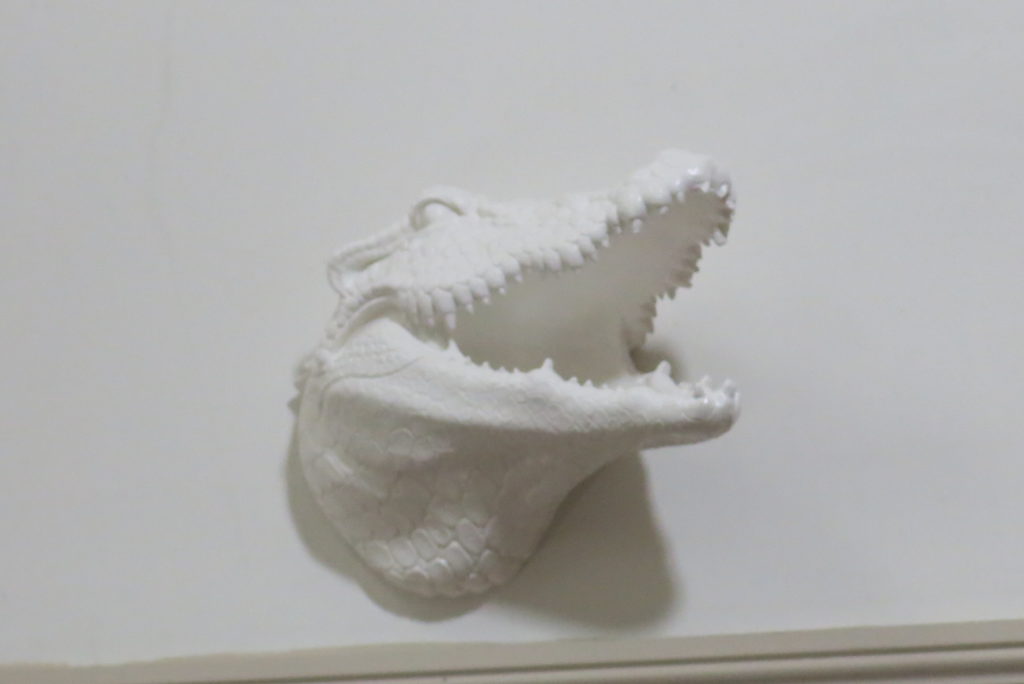
It is morning, winter solstice, the darkest day of the year, and you are lying with your boyfriend on his bed. You are from New Orleans, but you are now in Pittsburgh, where you came for a job and, where you fell in love a few months ago. There is snow on the ground and it is cold outside. You have just made love, and you are happy, mostly, although there is a sadness in you that you doubt even the most wonderful lovemaking could dispel. You love this man very much, but your birth city has just been drowned, your brother is dead, your family displaced. It seems wrong to be in love when so much is the matter. You remind yourself that this is the first time you have been happy in love in a long time.
His hands roam your back, and you smell him everywhere, he is the air, and you breathe him in as deep as you can.
I fixed my vacuum cleaner yesterday, you say. He looks at you as if you are speaking a strange language.
Remember, it was broken? I took it apart and fixed it. A belt had come loose. He looks slightly confused. You suppose it doesn’t seem like a thing of importance, certainly not something to bring up five minutes after making love. You are really thinking about New Orleans and how you cannot fix anything there, but you are talking about your vacuum cleaner. You hope he understands this.
I’ve had to learn to fix things, you say, because no man I’ve been with has ever been good at fixing things. You’re not sure why you’re telling him this. It sounds accusatory, though you don’t mean it to be. It’s a point of pride with you, that you can fix most things, that you don’t need a man to do anything mechanical around the house.
He pulls back, his head on the pillow and looks at you. It’s those dark eyes, Dutch and Frisian that first cut into you, and still do. Those eyes want you to say the truth.
Even if you had offered, you say, I wouldn’t have let you fix it.
At this point you think you should shut up because you feel like an idiot. You pull him close, feeling the warmth of his sturdy body, the sweet smell you love so much.
He is from a land that also lies beneath the sea, and his people are trying to help save your ruined city, but you don’t know that they will. He has told you that the story of the little boy with his finger in the dike is a not true, just a stupid story Americans like to tell about the Dutch. And as much as he feels like a levee for your own rushing grief, you don’t know that he can cure your sadness, which seems huge and gaping. What can love really do, you think to yourself, but do not say. You don’t wish to hurt him. You love him. You want him to keep touching you, to keep saying he loves you. To keep putting his hands on whatever fractures there are in you.
I am good at opening jars, he says slowly, as if he is saying something monumental. Any jar, he says, any jar that’s hard to open.
You feel like crying. He kisses you.
I’m also very good at pouring liquids from one container to another without spilling them, he says. This does not seem like such a useful thing, but you love him so you look in his eyes as if you understand why he is telling you this.
It comes from having worked in a darkroom for many years, having to pour things in the dark, he says. Without seeing.
Maybe, you think, it is a useful skill, to be able to measure things, to move confidently in the dark. You stroke the hairs on his chin. He continues.
I’m also good at getting keys out of cars when they’re locked inside, he says.
You want to tell him that you are good at this, too, but it seems like the wrong thing to say. Instead you bury yourself in his arms and think of your family, your city, drowned and sick, so far away. You take deep breaths of his love.
At the moment you feel good at nothing.
Sheryl St. Germain’s work has received several awards, including two NEA Fellowships, the Dobie-Paisano Fellowship, and, most recently, the William Faulkner award for the personal essay. Her poetry books include Making Bread at Midnight, How Heavy the Breath of God, and The Journals of Scheherazade. Swamp Songs: The Making Of an Unruly Woman, a collection of essays about growing up in New Orleans, was published in 2003 by The University of Utah Press. She currently directs the MFA Creative Writing Program at Chatham College in Pittsburgh, where she teaches poetry and creative nonfiction.

1 comment
Amy says:
Feb 15, 2021
Crushing. Beautiful.